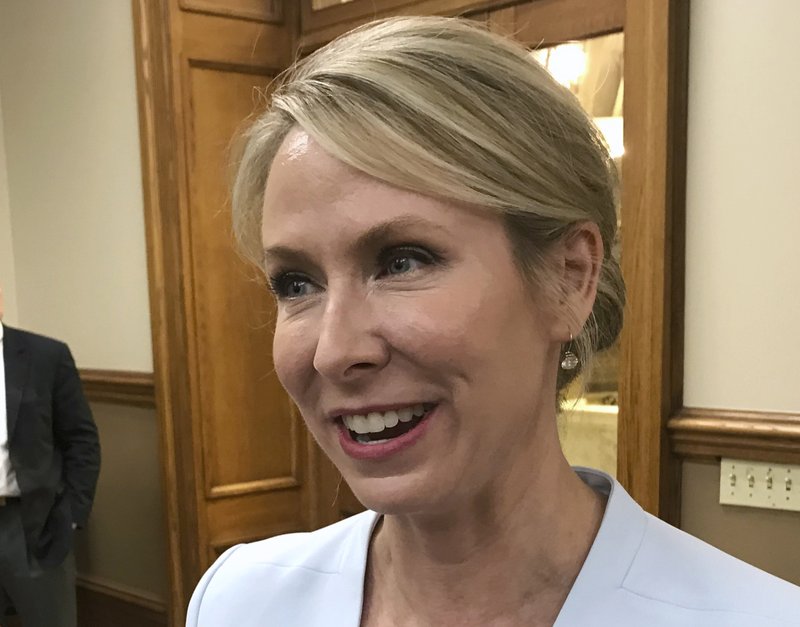LITTLE ROCK (AP) — An Arkansas Supreme Court justice who won re-election after conservative groups spent nearly $2.5 million trying to unseat her called the result a victory over outside groups trying to reshape state courts across the country.
Justice Courtney Goodson on Tuesday defeated David Sterling, an attorney for the state Department of Human Services, in a race marked by a flurry of attack ads and mailers by outside groups. The outside spending dwarfed that of Goodson and Sterling. She lost her bid for chief justice two years ago after facing similar attacks.
"I was absolutely delighted the voters of Arkansas joined me in sending a message loud and clear to these out-of-state, dark money groups that their money is no good here," Goodson told The Associated Press Wednesday. "Arkansas courts are not for sale...It's about protecting the independence and integrity of the judiciary."
The Republican State Leadership Committee's Judicial Fairness Initiative spent more than $1.9 million on the high court race, most of which the Washington-based group spent in the weeks leading up to Tuesday's election. Another group, the Judicial Crisis Network, spent more than $510,000 on TV ads for the race in the spring, according to the Brennan Center for Justice, which tracks judicial campaign spending. RSLC indicated it planned to remain involved in Arkansas' judicial races.
"The RSLC's Judicial Fairness Initiative is proud to have provided Arkansas voters with information about candidates that they wouldn't otherwise have received," David James, a spokesman for the group, said in an email. "We look forward to identifying future opportunities to support fair, constitutional conservative, rule of law candidates for the people of Arkansas."
A federal judge last week rejected Goodson's request to block an attack ad and mailer from the RSLC that she had claimed was false and defamatory. A state judge earlier this year had temporarily blocked some TV stations from airing another ad from the Judicial Crisis Network. One of the TV stations has appealed that ruling, which was criticized by First Amendment advocates.
Goodson has drawn the ire of conservatives for some court rulings, including a decision she authored in 2011 striking down Arkansas' cap on punitive damages in civil lawsuits. RSLC, which launched its initiative focused on state court races in 2014, and its donors this year have included the U.S. Chamber of Commerce, tobacco company Reynolds American, Bentonville-based Wal-Mart Stores and other major corporations.
The group saw victories elsewhere the night Goodson won. Two prominent Republicans backed by the group running for West Virginia's Supreme Court were elected to the high court Tuesday. The candidates — an ex-congressman and former state House speaker — had been appointed to serve on the court during the summer to fill the seats until Tuesday's election.
Douglas Keith, counsel for the Brennan Center, said outside group spending is significantly down from two years ago, when outside groups spent nearly $21 million on TV ads in court races. Keith said Brennan's estimates so far this year show about $5 million in outside TV spending in court races.
Keith said he doesn't expect defeats in states like Arkansas to deter outside groups' involvement in races for courts, which will decide cases on redistricting, voting rights and other issues.
"There's no reason to think they'll be exiting the playing field anytime soon, particularly as state supreme courts are likely to get increasing attention as the conservative majority on the U.S. Supreme Court becomes more solidified," Keith said.
